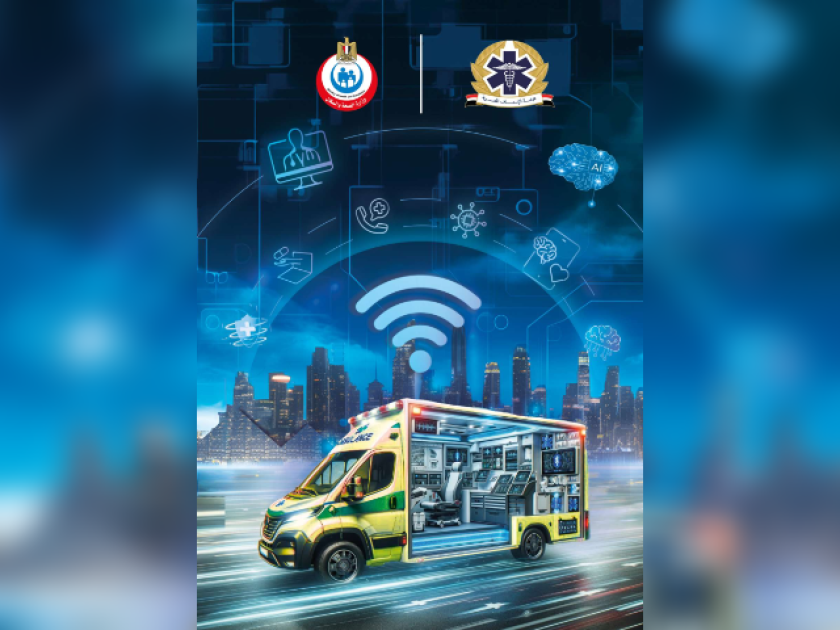In December 2023, Huawei signed a long-term agreement with the Ministry of Health and Population (MOHP) in Egypt to cooperate strategically.
Dr. Khaled Abdel Ghaffar, the minister of health and population of Egypt had expressed his full confidence in Huawei's capabilities to accelerate healthcare digitalisation in the country.
He also stated that they are willing to establish long-term strategic partnerships with Huawei in nine different areas, which include digital health insurance, emergency care, smart hospitals, medical research, health command and control centre, national healthcare digital platform, converged health network, health ICT talent, and green health.
Background
With a rapidly growing economy and improving human resources, the reform of Egypt’s healthcare sector has become a top priority for the country in recent years.
Egypt’s Decent Life initiative aims to provide a better life for over half of the country's population. The initiative aims to better standards of living, infrastructure and service, targeting 58% of Egypt’s 102 million population who live in 4,658 villages across the country.
The Egyptian MoHP is the owner of the entity that manages and operates all public hospitals and medical units in the country. The organisation is responsible for formulating strategies and plans for the development of the Egyptian healthcare industry in line with the national vision and assigned by the government to apply, review and develop strategies to meet international standards.
To drive a secure and sustainable digital transformation in healthcare, "Egypt's 2030 healthcare development strategy” aims to digitalise hundreds of public hospitals and thousands of medical units under the MOHP based on the ICT advanced technology, improve medical quality, increase access to medical services, and enable people to live a decent and dignified life".
At Mobile World Congress 2024, Dr Ahmed Saafan, head of the Curative Care Sector at the MOHP and Dr Amr Rashid, CEO of the Egyptian Ambulance Organization (EAO) caught up with Capacity to discuss the progress of the partnership and how Huawei has been helping reform Egypt’s healthcare sector.
The proposed framework for digital transformation includes integrating and strengthening health information systems, enhancing institutional capacity for public health research and development and enhancing health governance leadership and accountability through regulatory and legal frameworks.
On top of that, Dr Saafan adds: “Enhancing the healthcare workforce, enhancing patient public engagement, ensuring adherence to quality care and safety standards and driving secure and sustainable digital transformation in healthcare.
So far, technical solutions such as smart hospitals, pre-hospital first aid and smart campuses provided by Huawei have been successfully deployed in the Egyptian MOHP.
Digital intelligence technology goes a long way in helping to solve pain points encountered in the process of digital transformation.
AI for digital transformation
“We are widely using AI and big data, which helps solve some problems during digital transformation,” Dr Rashid says.
Firstly, he says, AI has helped tremendously for Ambulance intelligence management and essentially improves Ambulance management and safety. By using DashCom cameras inside the ambulance and AI algorithm, the EAO can track abnormal behaviour and risk movements such as phone detection, smoke detection and wheelchair detection.
“Second, the big data profoundly promotes the improvement of EAO’s first aid level,” Dr Rashid adds.
Through the data asset system of normalised management, the interconnection of data replaces the manual offline communication of information which improves the efficiency of emergency services.,
The comprehensive mining, analysis and processing of business data can help managers make scientific decisions, optimise business processes and further improve business efficiency.
“To sum up, data directly and indirectly supports EAO’s business improvement,” Dr Rashid says.
By analysing data such as road and traffic conditions, ambulance position, patient position, emergency room availability and patient medical records, EAO says it can plan the fastest, most efficient first aid route for emergency services to avoid errors in judgement due to manual experiences.
Digital intelligence offers a thorough analysis of all emergency-related aspects, providing data for informed decision-making. This data enables the Emergency Ambulance Organization (EAO) to assess the mortality rate of emergency illnesses and pre-plan the required medical staff and equipment for ambulance services.
It allows for analysing vehicle accidents caused by improper driving and evaluating drivers to improve performance.
And according to Dr Rashid, there have already been significant key milestones achieved with Huawei.
“EAO has so far connected more than 200 ambulance cars with the government network and 3000+ ambulance cars are under planning currently, which both require support from the Huawei side,” he says.






